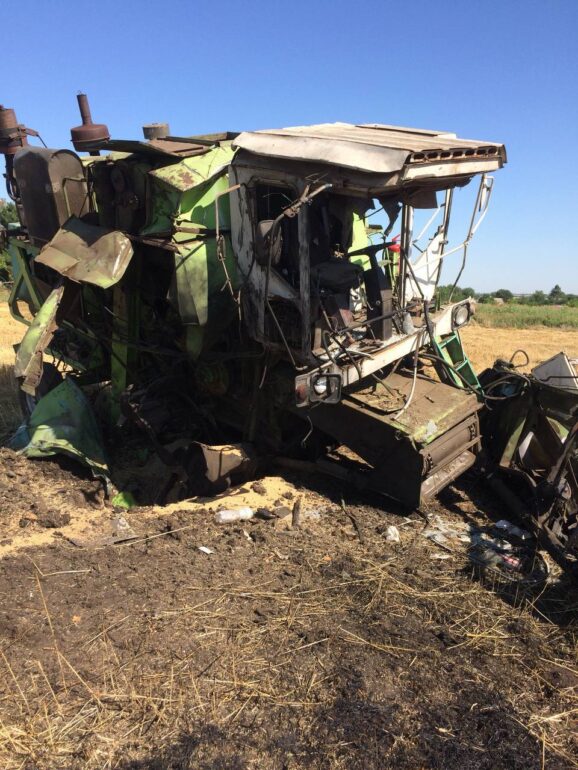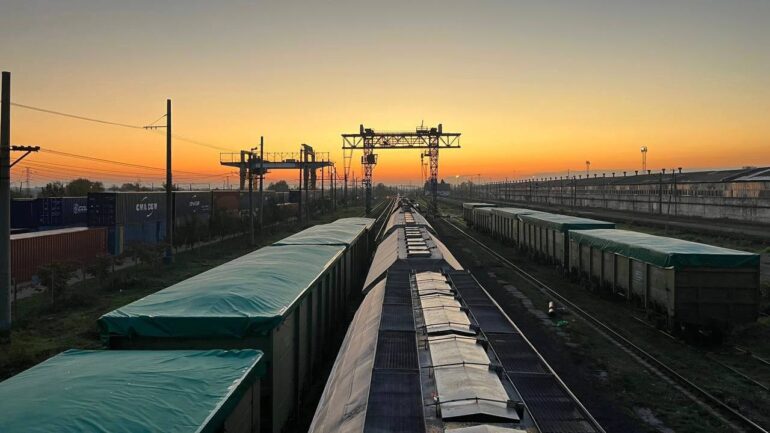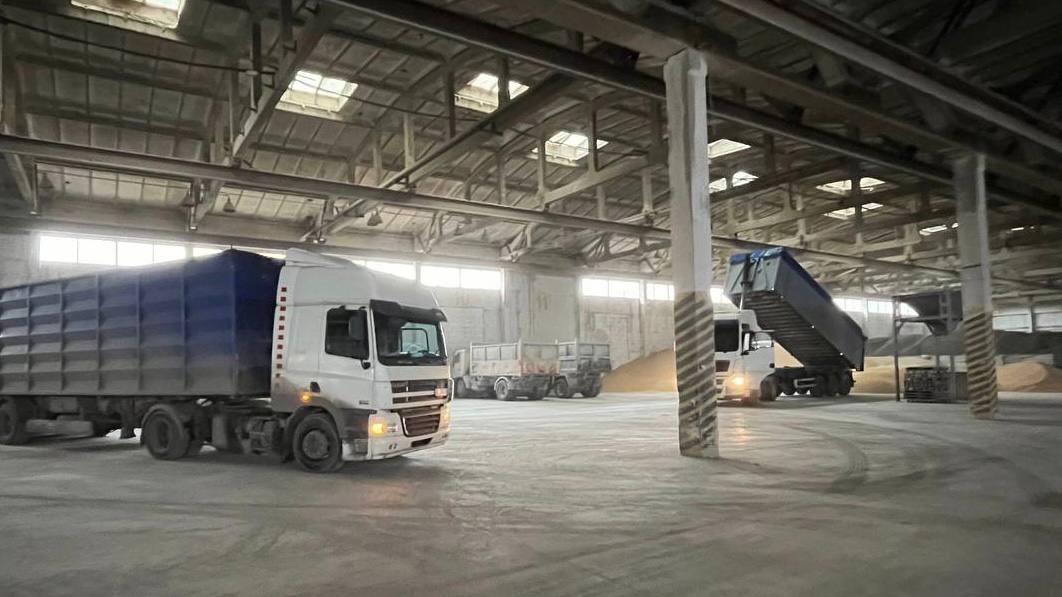Food prices have been a painful topic across the world but in 2022, prices began to rise even faster.
A significant cause was Russia’s invasion of Ukraine last February, according to the Federal Reserve Board and Division of International Finance.
Ivan Nechet is part of a Ukrainian farming family that has spent their lives growing wheat, corn, and sunflowers. They live in the Zaporizhian oblast (region), just north of Russian occupied territory in eastern Ukraine, and suffer constant attacks.
Nechet said they have already lost equipment worth 1 million hryvnas ($35,000) and tonnes of wheat.
“We have high quality standards and need time to make our job properly, but it is officially forbidden to work during the air alarm, so sometimes we must hide for some hours,” he said in an interview.

The ex-farmer said that when the war started, everyone who had crops decided to sell them to get some money. Farmers were ready to sell it for low prices due to the panic, but the country does not have enough storage space to save it.
He said had working in South Korea for two years and when he returned to Ukraine, he bought a storage unit for his parents for $15,000.
Now it’s completely destroyed.
“Russians attacked all storage facilities because they didn’t know what was inside, so they ruined everything. That’s why wheat prices in Ukraine decrease — we don’t have a place to save it,” Nechet said.

Currently, Nechet works as a grain inspector and controls the quality before export. He said that prices around the world are going up because of delays.
“We have lots of rain, and to protect the grain from moisture, we cover the wagons with awnings, but the Russian soldiers see this and start firing because they think we are transporting military equipment,” Nechet said.
Ukraine is the world’s fourth largest corn exporter, according to the United States Department of Agriculture. The war has damaged Ukraine’s ports and agricultural infrastructure, crippling if not stalling distribution of food to the world.

According to the United Nations reports, 50 per cent of Ukraine’s energy infrastructure was destroyed by Russia and $35.3 billion of its transportation infrastructure was damaged.
This could lead to years of agricultural crisis despite Turkey brokering precarious deals to ensure shipment of Ukrainian grain safely through the Black Sea.
Nechet said he believes next year will be much more difficult because his family and other farmers are not going to plant grains next season.

“On our field, Ukrainian soldiers found 23 mines, but my father ran over one of them with a combine harvester. Dad is alive but shell-shocked,” Nechet said. “His hearing has not yet recovered.”
His family no longer wants to take the risk, and many of their colleagues don’t as well, so next year’s harvest could be much smaller.
According to the State Emergency Service’s website, 30 per cent of the agricultural areas have been mined.
But the biggest reason for delays is the occupation of Ukrainian ports, which were the main infrastructural objects for export. Nowadays, all transportation is done by train, and fuel prices have skyrocketed.
The Ministry of Agrarian Policy said the number of ships departing from Ukrainian ports fell significantly because of Russia blocking the grain corridor.
According to German Bundesamt statistics, in December 2022, the index of producer prices for industrial products increased by 21.6 per cent compared with December 2021.
Gunter Ortwig, a restaurant chef from Germany who orders groceries weekly, said he feels the war is behind much of the price changes.
“Germany does not buy Russian oil, vegetables, or seafood, but the main problem is that, due to the war, Ukraine can’t export enough,” Ortwig said in a phone interview.
Natural gas issues are also contributing to price increases. According to the comparison portal Verivox, last fall’s gas prices peaked and rose almost 10 times (40 cents per kilowatt-hour). According to Verivox, one kilowatt-hour of gas currently costs an average of 11.9 cents for new customers.
“The prices rise because of energy prices, we do not buy Russian gas and we need to buy it from the United States and Middle Eastern countries,” Ortwig said. “It is much more expensive. We buy oil in Norway, which is 30 per cent more expensive than before.”
Prices are rising in Canada as well. According to the 13th edition of Canada’s Food Price Report 2023, the annual food expenditure in 2022 for women aged 31 to 50 years was $3,495 and $3,896 for men, which is $330 more than the previous year.
Canada excluded Russia and Belarus from its Most Favoured Nation tariffs. The withdrawal soon resulted in a 35 per cent customs duty, which was applied to nearly all imports from Russia and impacted the prices of products for Canadian consumers.

